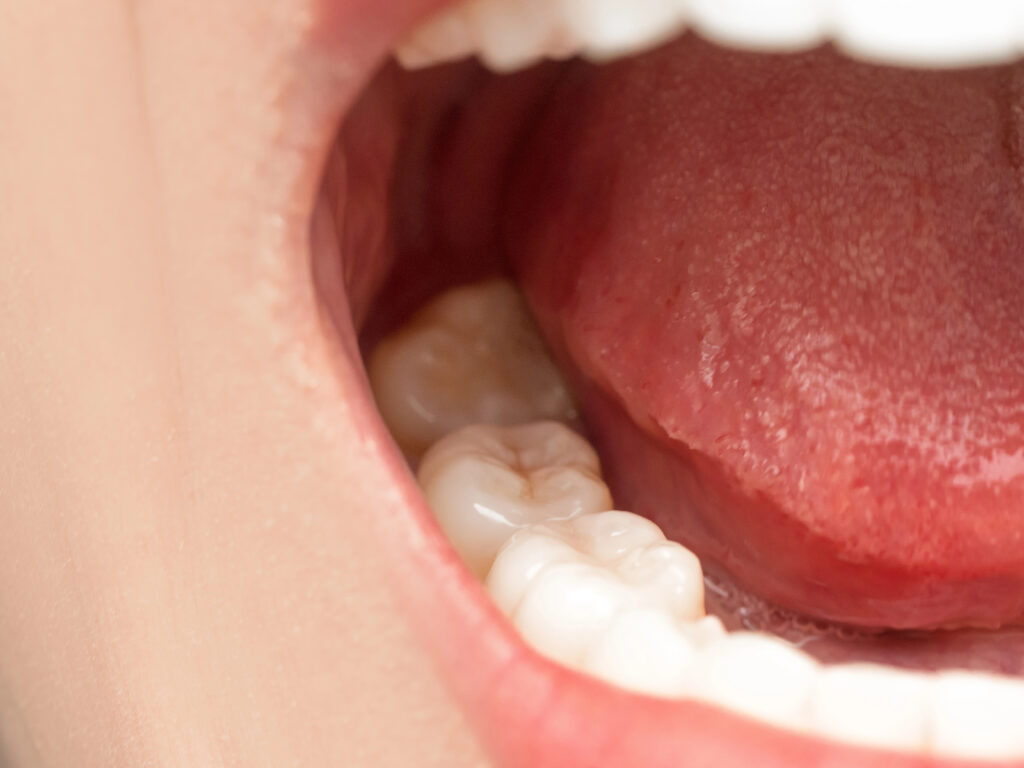What’s The Best Way to Floss
We all know we should floss, but it can be tough. Part of this is because flossing can feel like an extra task in an already busy day, but it...

Wisdom teeth, also known as third molars, are the last set of teeth which emerge all the way in the back of the mouth. While it’s common for people to have their wisdom teeth come in during their late teen years or early twenties, not everyone experiences this dental milestone.
Wait what? Yes, it’s true; some people actually don’t get wisdom teeth. Let’s explore the reasons behind this variation and what it means for your oral health.
Wisdom teeth are believed to be a remnant of our ancestors’ larger jaws and diets that consisted of tougher, uncooked foods. As human diets and jaw sizes have evolved over time, the need for these extra molars has diminished. In fact, some anthropologists consider wisdom teeth to be vestigial organs, similar to the appendix.
The presence or absence of wisdom teeth is largely determined by genetics. Some people are born without the propensity to develop any wisdom teeth, while others may have one, two, three, or all four. This variation is perfectly normal and doesn’t necessarily indicate any underlying health issues.
Research suggests that certain genetic mutations may be responsible for the absence of wisdom teeth. These mutations affect the development of tooth buds, which are the embryonic structures that give rise to adult teeth. If the wisdom tooth buds fail to form or develop properly, the corresponding teeth will not emerge.
If you don’t have wisdom teeth, rest assured that you’re not alone. Studies estimate that between 5% to 37% of the population is missing at least one wisdom tooth. Some people may be congenitally missing all four wisdom teeth, a condition known as hypodontia.
The absence of wisdom teeth is more common in certain populations. For example, a study found that Asian and African populations have a higher prevalence of missing wisdom teeth compared to European populations. These variations highlight the role of genetics and ancestry in tooth development.
While wisdom teeth served a purpose for our ancestors, they often cause more harm than good in modern times. Many people experience problems when their wisdom teeth come in, such as:
If you don’t have wisdom teeth, you may be spared from these potential complications. The absence of wisdom teeth can also mean a lower risk of needing tooth extractions or other dental interventions later in life.
Even if you don’t have visible wisdom teeth, don’t neglect regular dental check-ups and discuss wisdom teeth with your dentist. Just because you don’t see them doesn’t mean they aren’t there. In some cases, wisdom teeth may be present but fail to emerge fully, a condition known as impaction. We can use X-rays to determine whether you have any wisdom teeth developing beneath the gums.
Impacted wisdom teeth can lead to pain, swelling, and infection. If we detect any impacted wisdom teeth, we may recommend extraction to prevent future complications.
If you have any concerns about your wisdom teeth or any of your teeth, don’t hesitate to reach out to our experienced dental team. We’re here to answer your questions and provide personalized care to keep your smile healthy for years to come. Call us today to schedule your next appointment!